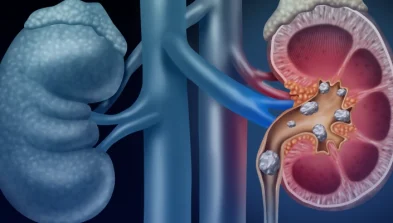5 Effects of Weather Changes on the Human Body
The changes in weather often give rise to a number of health-related problems for the human body. From the regular cold and flu to dry skin and deteriorating energy levels, your body faces numerous challenges whenever there are changes in temperature.
Let us now look at some of the major effects of changes in weather on the human body:
Headaches and Migraines
According to medical experts, the constriction of blood vessels in the brain is one of the leading causes of headaches. Cold weather conditions can result in reduced flow of blood to the brain, leading to headaches. Weather changes such as extreme cold weather, stormy weather, sun glare, etc. are also known to cause brain chemical imbalances, leading to increased chances of migraine attacks.
Decreased Energy Levels and Sad Mood
Less exposure to light during daytime, usually during the colder months of the year, is known to be one of the primary causes of seasonal affective disorder (SAD). As a result, people suffering from this disorder produce excess amount of a chemical known as SERT, which reduces the levels of the “serotonin” (happy hormone) in the body. To overcome this, it is important to get as much sunlight as possible.
Vitamin D Deficiency
Optimal sun exposure converts the cholesterol stored in the skin into Vitamin D13, making it one of the most vital sources of Vitamin D for the body. During the colder season, people prefer staying inside their homes and don’t get sufficient sun exposure while the UV index is already low. This can lead to Vitamin D deficiency in people and is likely to cause problems such as muscle weakness, sleepiness, and higher pain sensitivity. In such cases, it is recommended to increase your Vitamin D intake through diet and consume foods like salmon, tuna, fortified milk, etc.
Problems in Breathing
Many people often suffer from shortness of breath during the winter season. This is because low temperatures can cause muscle spasm of the small airway and make it narrower. Wearing a facemask in such situations is highly recommended by medical professionals as the mask warms the air before it enters the lungs.
Joint Pain
According to a theory, cold or damp weather leads to lower air pressure around the joints, causing the surrounding soft tissues to expand. This can increase the pressure on the joints, resulting in pain. While the medicines manufactured by the top pharma companies can easily provide you relief from joint pain, regular exercising is one of the best ways to avoid this problem during changes in temperature. It keeps your body warm and moving, loosens the stiff joints, and aids in weight loss which automatically reduces the stress on the joints.
Changes in weather can be hard to deal with. However, consuming a well-balanced diet, keeping your body moving, and following some basic precautionary measures are some of the best ways to keep any health problems arising due to changes in temperature at bay.
Disclaimer This blog solely intended for the educational/informational/awareness purposes and is not a substitute for any professional medical advice, diagnosis or treatment. Please consult your doctor/healthcare professional before acting on the information provided on the blog. Reliance on any or all information provided in the blog, is solely at your own risk and responsibility. Mankind Pharma Limited shall not be held liable, in any circumstance whatsoever.











